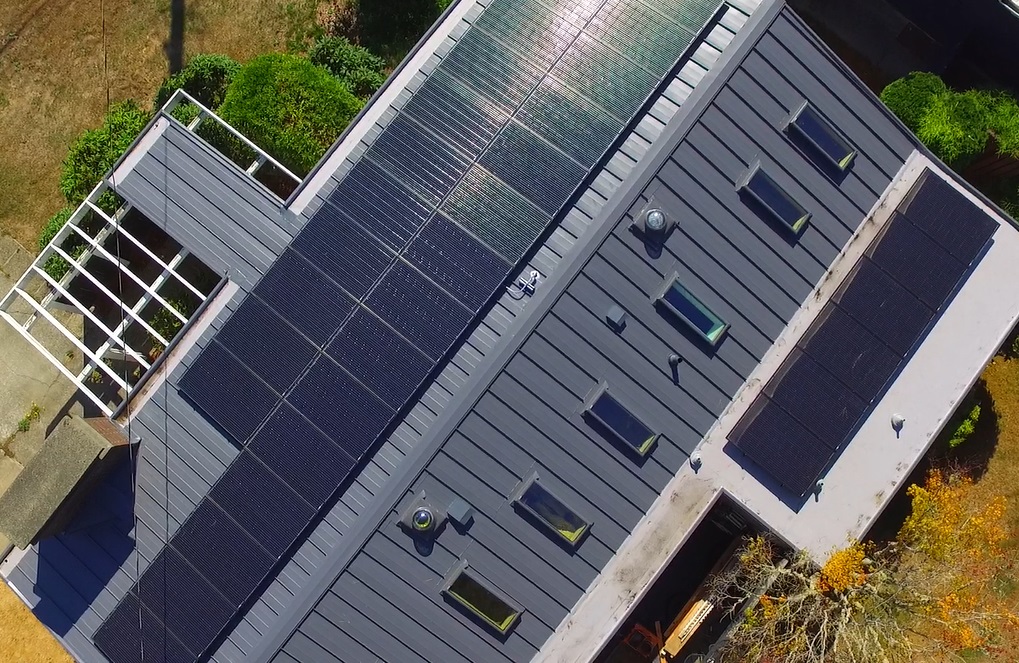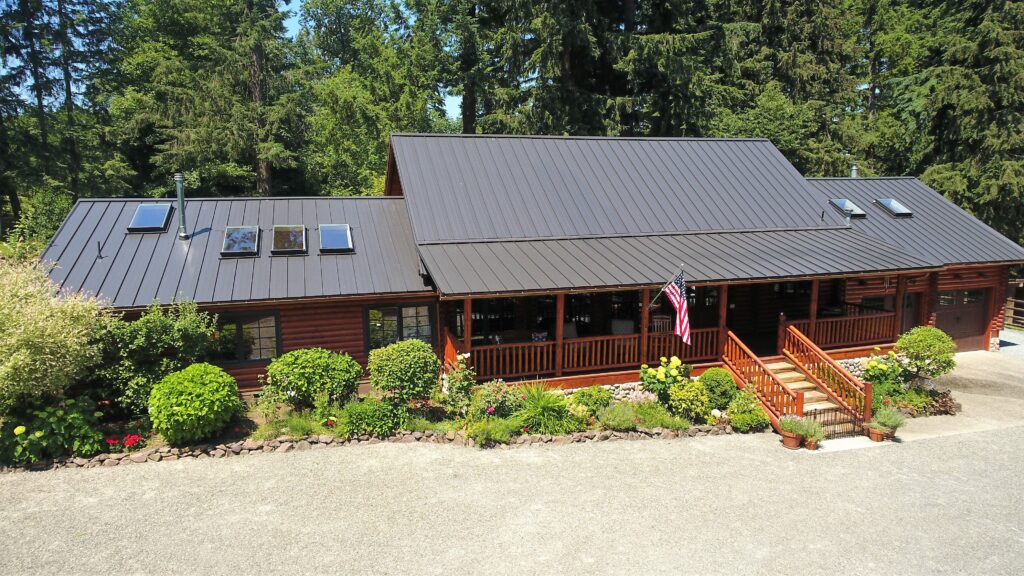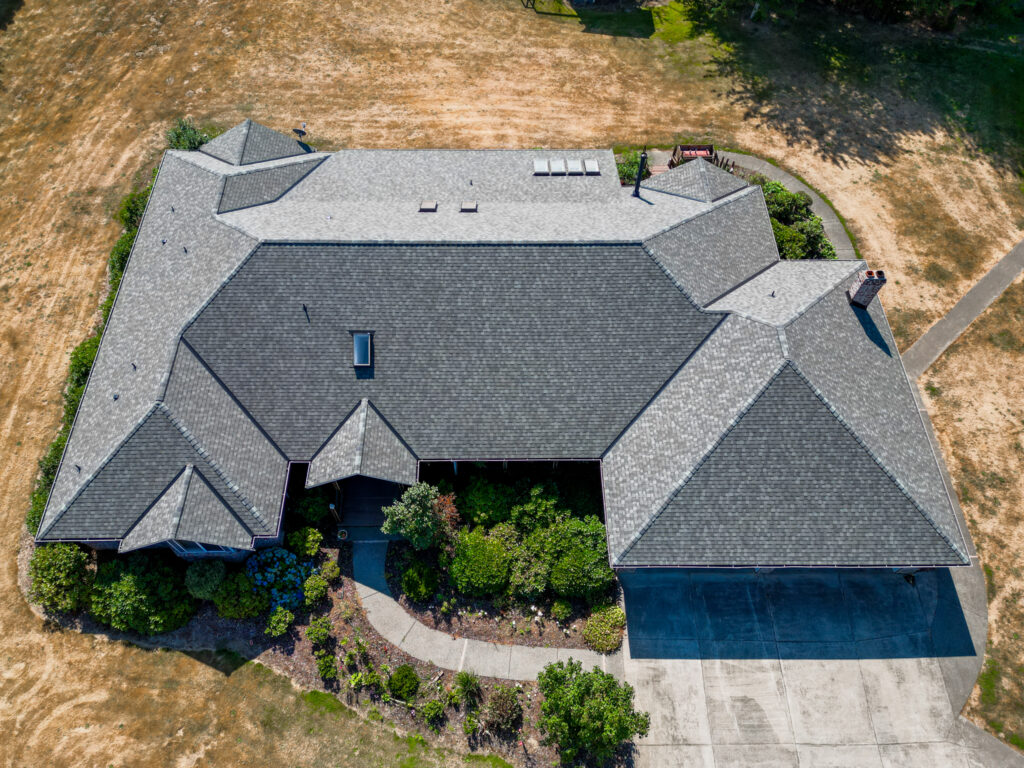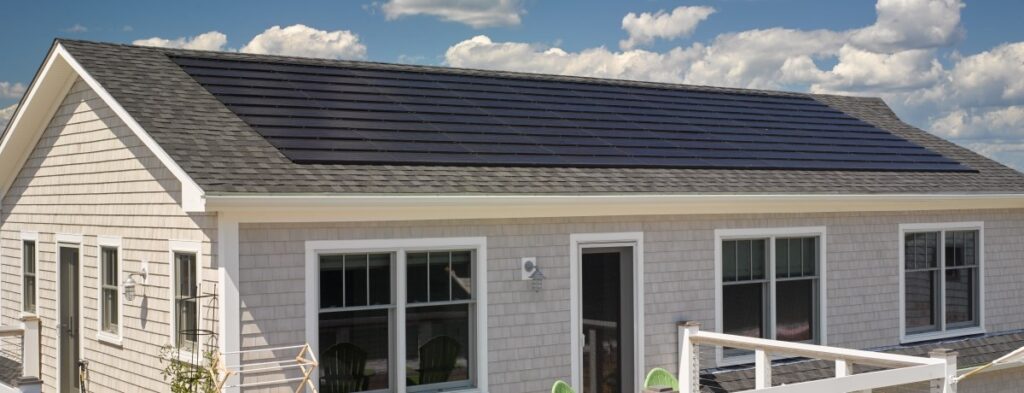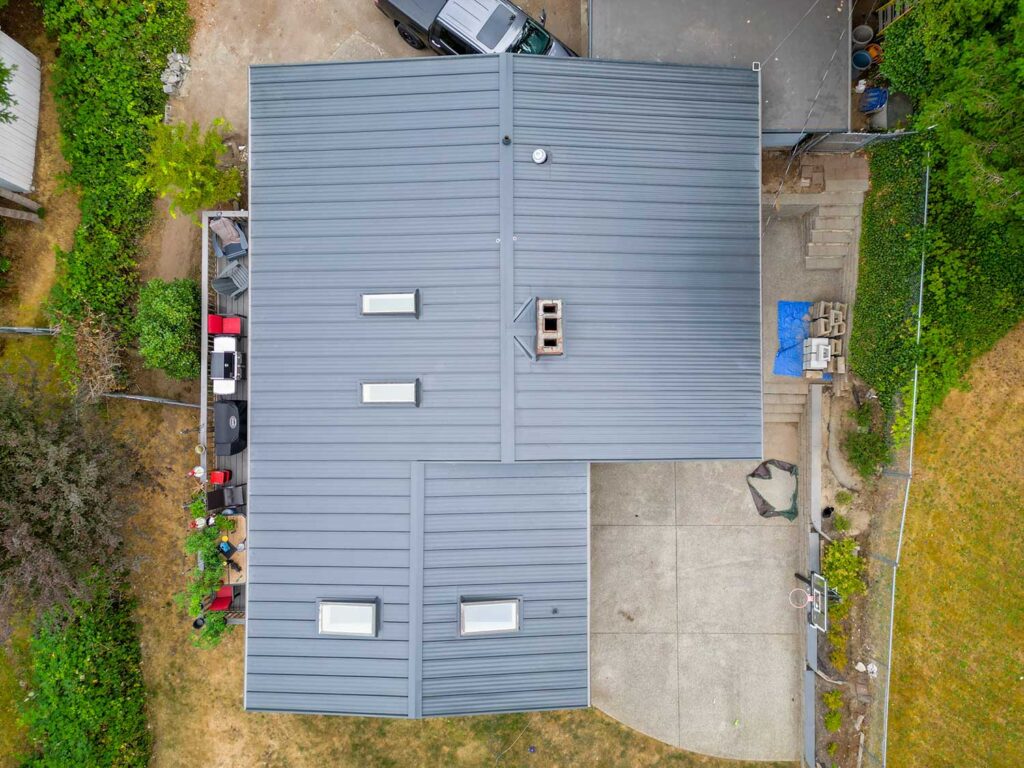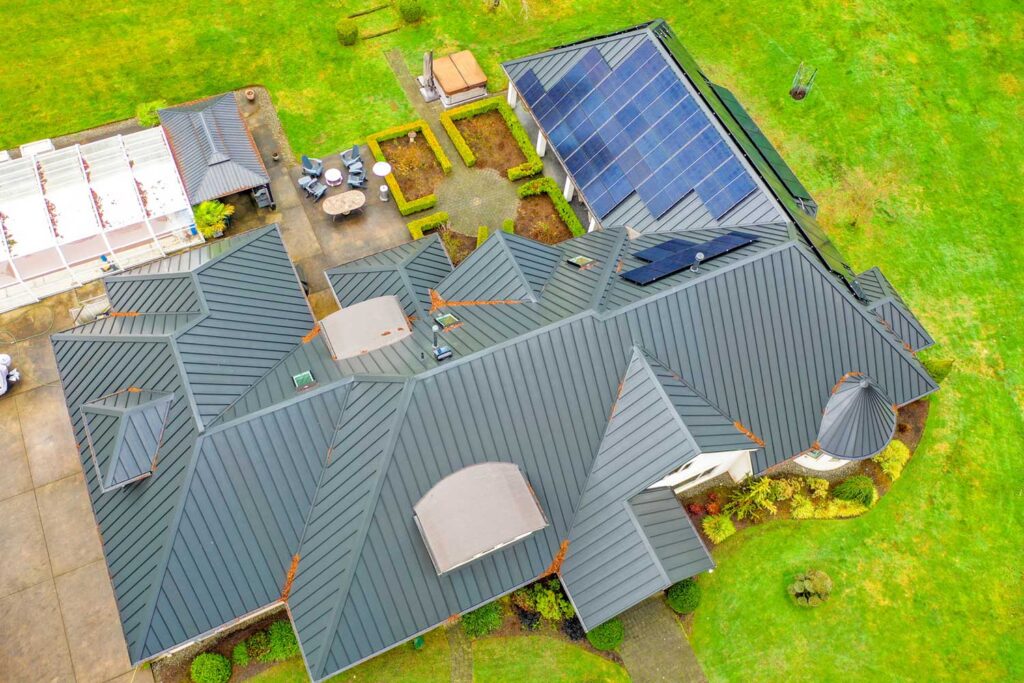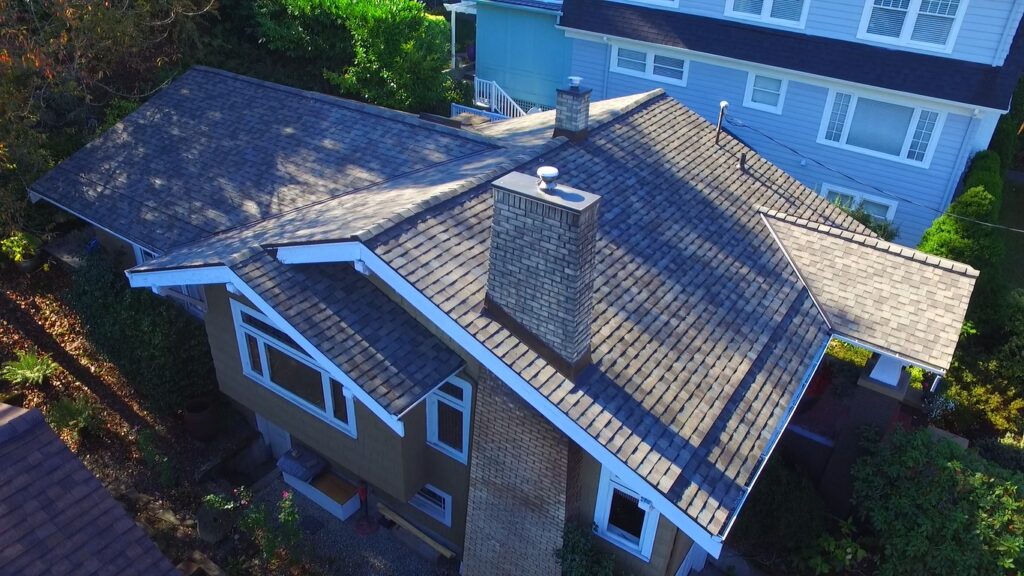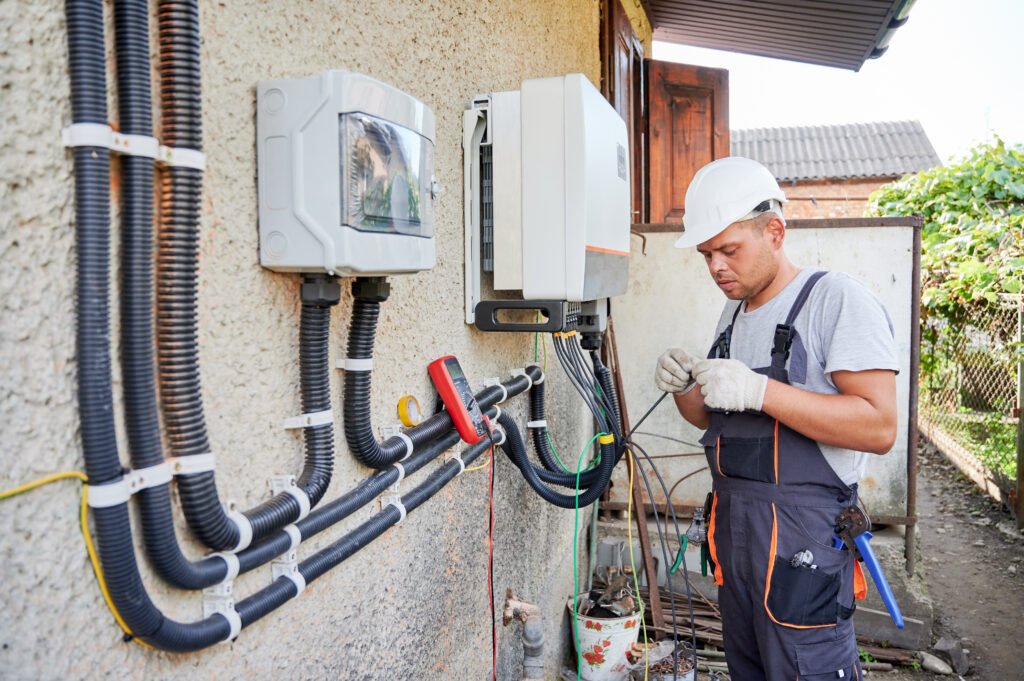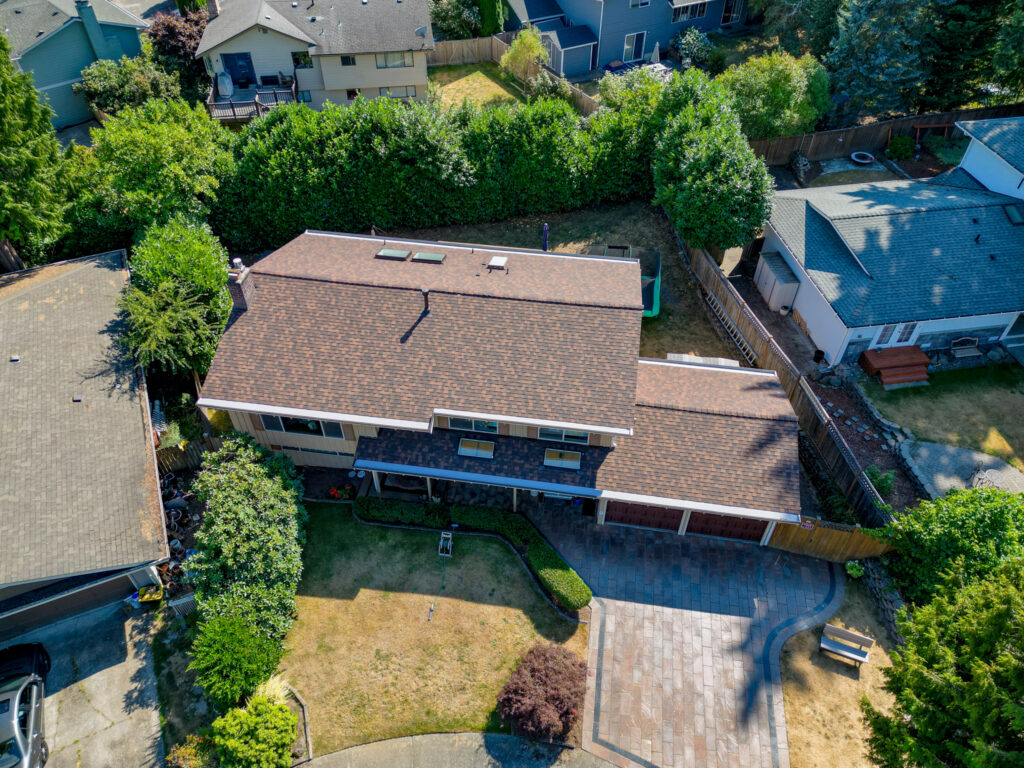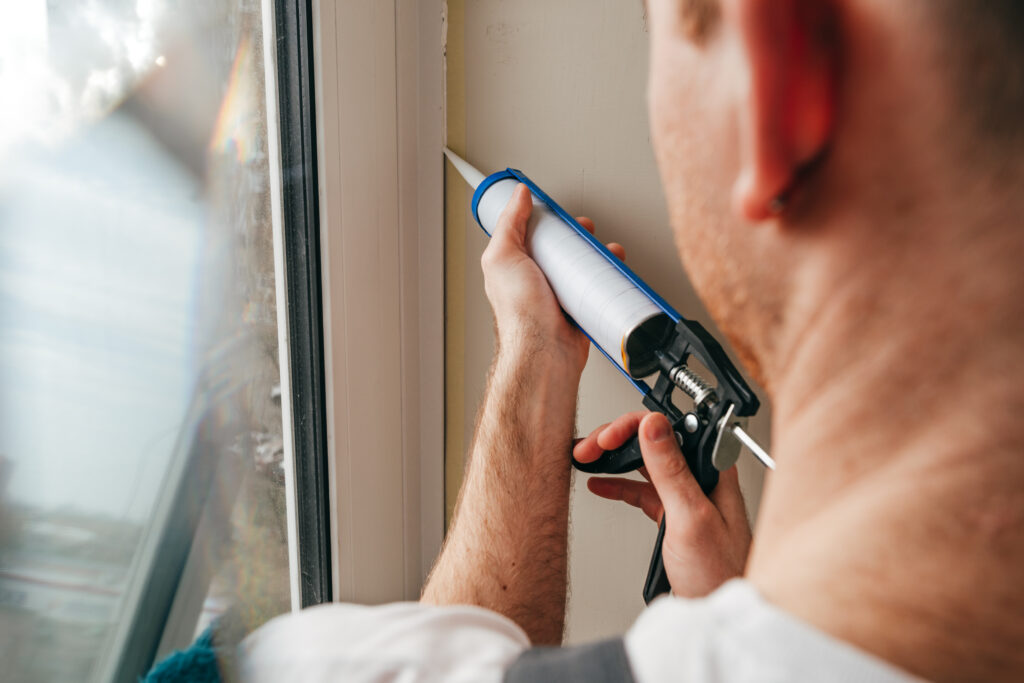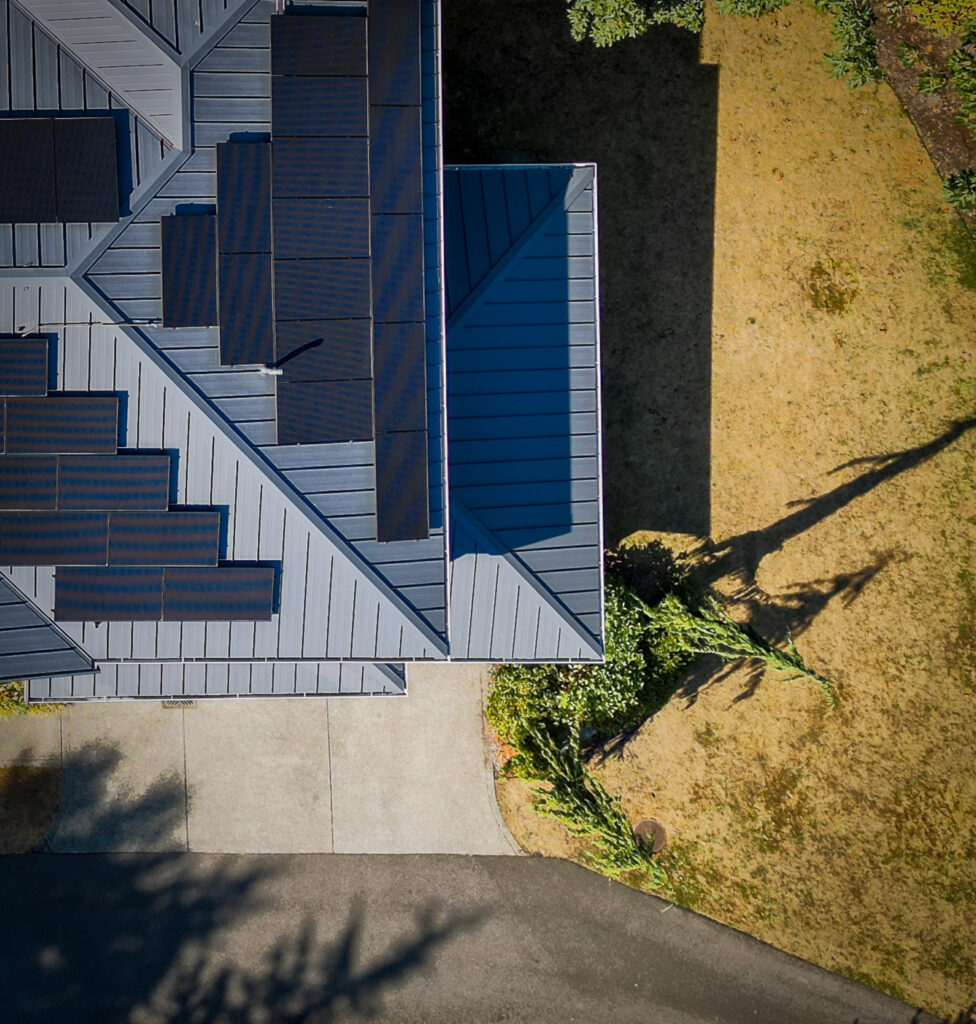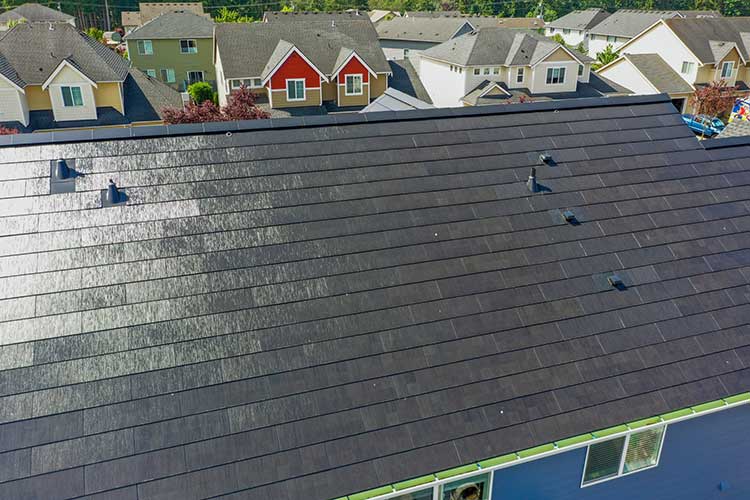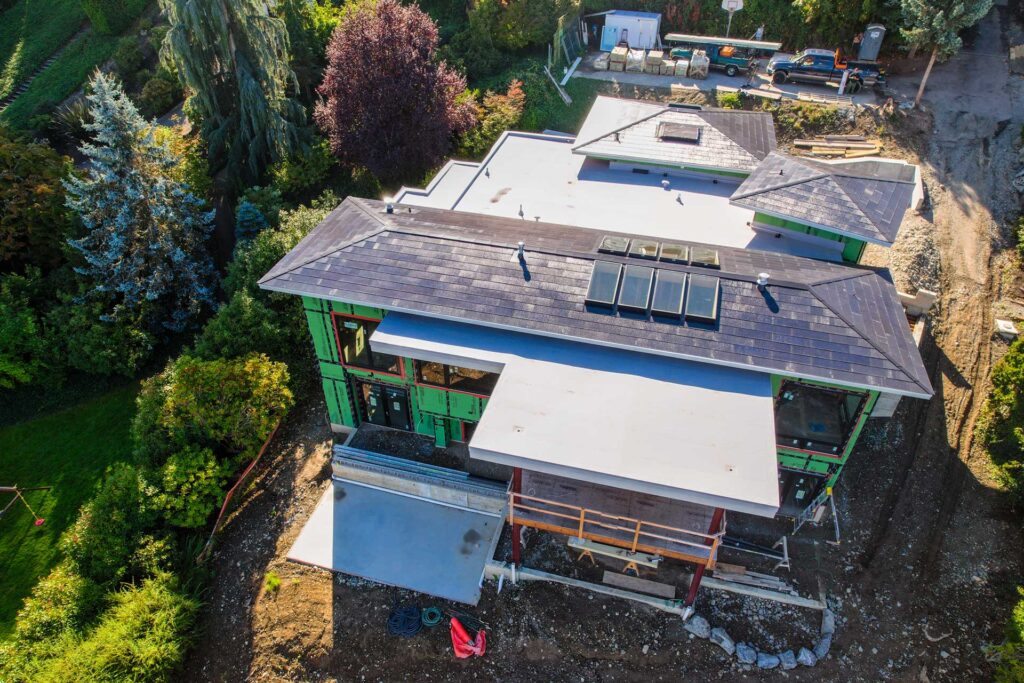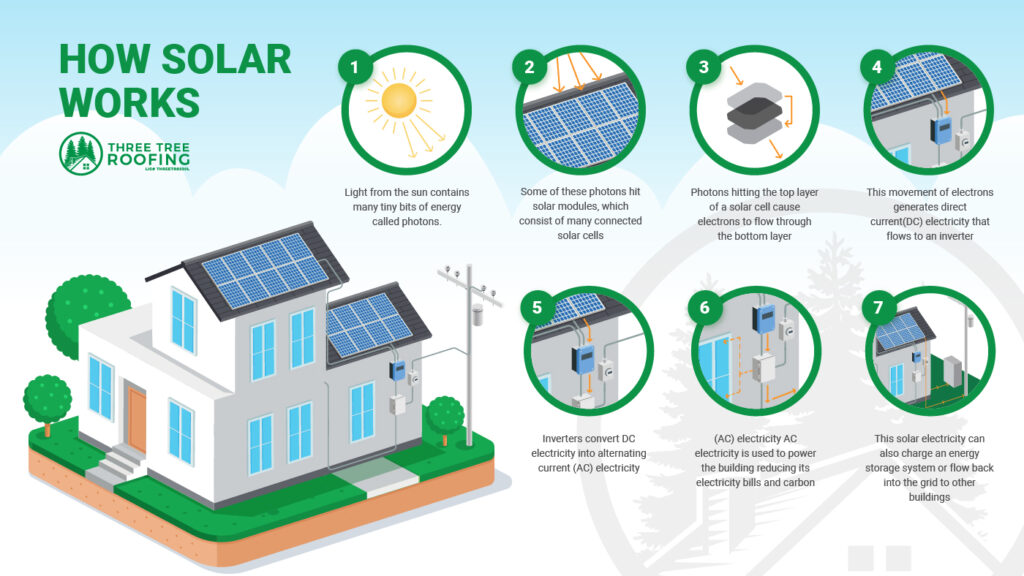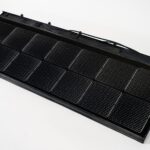Solar panel installations are becoming increasingly popular due to their affordability and efficiency; they don’t require costly maintenance or fuel sources, making them a great choice for any homeowner who desires independence from traditional utilities. This comprehensive guide will provide all of the information needed on how to prepare your house for solar panels in order to make sure that the process goes smoothly, leaving you feeling secure and empowered by renewable energy. From understanding building codes to assessing the feasibility of installing certain types of panels based on weather conditions, readers will gain insight about how to properly plan so that their system operates optimally.
Assessing Your Roof's Suitability for Solar Panels
Installing a solar panel system in one’s home is not as simple as flipping a switch; there are several steps involved before you can reap the benefits of having your own source of renewable energy. Let's start with factors to consider when accessing your roof for solar.
- Roof Condition: Solar Ready?
- Types of Roofs Ideal for Solar Panel Installation
- Roof orientation
- Space Availability
- Roof Complexity
- Shade Analysis
- Local Regulations
- Electrical Wiring Requirements
- Local Incentive Programs
Roof Condition: Solar Ready?
Your roof should also be free of any major damage or leaks before attempting an installation. Necessary repairs should be made prior to installing the panels. Trying to repair your roof after panels have been installed could add both cost and complexity; thus, it is important to determine whether these will be worth undertaking beforehand.
If your roof is at its end of lifespan, installing solar panels on top of an old and failing roof will result in future expenses down the road. If the roof needs replacement, it is important to replace your roof before taking on any solar installation in order to create a sound roofing and solar system.
In the Seattle Area? Call Us - 206-312-7663 (ROOF)
If your roof is not in good condition, you may need to replace your roof with a new roof before installing solar panels. If you are in the Seattle area, call us to provide a free estimate for a roof replacement to get your roof solar ready.
Types of Roofs Ideal for Solar Panel Installation
Standing seam metal roofs and composition asphalt shingle roofs are two types of roofing that are particularly well-suited for solar panel installations. Both of these roofing materials offer durability, longevity, and optimal solar panel compatibility.
Standing Seam Metal Roofs
Standing seam metal roofs are an excellent choice for solar panel installation due to their unique design and numerous benefits. Here's why:
Solar Panel Fastening: Solar panels can easily be attached to standing seam metal roofs using clamps that fasten onto the pencil ribs (or seams) of the roof. This non-penetrating installation method eliminates the need for drilling holes, preserving the integrity of the roof and reducing the risk of leaks.
Durability: Metal roofs are known for their durability, as they can withstand harsh weather conditions such as heavy rain, snow, and high winds. This means that your solar panels will be protected from potential damage caused by extreme weather.
Longevity: Standing seam metal roofs have a lifespan of 40-60 years, outlasting many other roofing materials. This long-lasting quality makes them an ideal match for solar panels, which typically have a 25-30 year warranty.
Outstanding Warranties: Many metal roofing manufacturers offer impressive warranties, some as long as 50 years. This provides peace of mind for homeowners, knowing that their investment in both the roof and solar panels is well protected.
Aesthetically Pleasing: Metal roofs come in various colors and styles, making it easy to match your home's exterior design. The sleek appearance of standing seam metal roofs complements the modern look of solar panels, creating a visually appealing rooftop.
Composition Asphalt Shingle Roofs
Composition asphalt shingle roofs are another popular choice for solar panel installation due to their durability, longevity, and compatibility with solar panel systems.
Durability: Asphalt shingles are designed to withstand various weather conditions, including rain, snow, and high winds. This durability ensures that your solar panels are well-protected from the elements.
Longevity: Composition asphalt shingle roofs have a lifespan of 20-30 years, which aligns well with the warranty period of most solar panels. This means that your roof and solar panel system will age together, reducing the likelihood of needing to replace the roof before the solar panels reach the end of their useful life.
Optimal Solar/Roof System Compatibility: Asphalt shingle roofs have a relatively flat surface, making it easier to install solar panels. Furthermore, the granular texture of the shingles helps to grip the mounting hardware, providing additional stability for the solar panel system.
New Solar Shingles from CertainTeed!
CertainTeed Solstice Shingle: A Sleek and Efficient Solar Shingle Solution for Your Roof
Roof Orientation
South-facing roofs tend to be ideal for capturing and converting sunlight more efficiently compared to other orientations such as east or west. However, even if your roof does not face southward directly, the panels can still generate enough energy with little loss in efficiency provided there are no obstacles blocking direct access to the sun's rays.
Space Availability
Before installing solar panels on your roof, it's essential to ensure that you have enough space available to accommodate the panels. Most solar panel systems require a minimum of 100 square feet of unobstructed roof space, though the exact amount may vary based on the size and type of panels you choose. Additionally, it's crucial to consider potential obstructions, such as chimneys or vents, that may limit the amount of space available for panel installation.
Roof Complexity
Your roof’s complexity is a major factor that will determine where solar panels can be placed on the roof, and how many kilowatts your system is able to generate. Things like dormers, skylights, pipes, and vents all go into the complexity factor of the roof and will determine where solar panels can be placed on the roof.
Shade Analysis
It is crucial that shade analysis is conducted prior to starting a project since trees or nearby buildings may cast long shadows over part of the day which would reduce overall output from your system. Therefore, make sure any potential shading sources have been accounted for when making plans so that you get maximum benefit from your investment.
Local Regulations
Local regulations can include building codes, zoning laws, and homeowners association rules. Some areas require permits for solar panel installations, while others have restrictions on the placement and size of solar panels. There are also electrical codes and regulations that can vary to ensure that the system is safe and up to code.
Homeowners can research local regulations for solar installations by contacting their local building department or planning office. These government agencies can provide information about building codes and zoning laws that apply to solar installations in their area. Homeowners can also check with their homeowner's association to determine whether there are any restrictions or guidelines for solar panel installations. Additionally, many states and municipalities have websites or online databases that provide information on local incentives and regulations for renewable energy systems.
It's important to work with a licensed and experienced solar installer who is familiar with local regulations and can also guide you through the process.
Electrical Wiring Requirements
Proper electrical wiring is a critical aspect of a solar installation. The solar panels need to be connected to an inverter, which converts the direct current (DC) produced by the panels into alternating current (AC) that can be used to power your home. This connection requires specialized electrical wiring and a dedicated circuit breaker that is sized appropriately for the system.
Local Incentive Programs
One should also be aware of local incentive programs that offer tax breaks or credits related to installing renewable energy systems like solar; taking advantage of these opportunities could mean significant financial savings down the line!
Preparing Your Home for Solar Panel Installation
Having assessed the suitability of your roof for solar panel installation, it is time to prepare your home and maximize its potential. There are a few important steps that you need to take in order to ensure a successful transition into using renewable energy sources such as solar power.
Make Sure Your Roof is Solar Ready
Before investing in a solar project, it is important to make sure that your roof is up for the job. Roof maintenance and repairs should be carried out prior to beginning any installation process; this way you can ensure that there are no unexpected surprises during the process.
The most common issue with roofs when it comes to installing solar panels is leaking or damaged shingles or tiles. If these problems exist, they will need to be addressed by a professional local building contractor who specializes in roof repair before proceeding with the solar installer. Additionally, any trees close to the house should also be trimmed back as their shade could reduce the efficiency of a solar system over time.
In the Seattle Area? Call Us - 206-312-7663 (ROOF)
If your roof is not in good condition, you may need to replace your roof with a new roof before installing solar panels. If you are in the Seattle area, call us to provide a free estimate for a roof replacement to get your roof solar ready.
Reduce Air Leakage
Reducing air leakage around doors and windows is a good step to take in your home whether you are getting solar panels or not and can drastically improve energy efficiency - this includes replacing any old or worn-out materials with more efficient options such as weather stripping or caulking. You may also want to consider investing in insulation for attics and walls, especially if they are not up to par with current standards; doing so will help keep cool air inside during summer months and warm air inside during winter months, thus reducing the amount of energy required from other sources.
Choosing The Right Solar Panel System
With the roof has been prepped, it is time to move onto selecting the right solar panel system. This process requires research and careful consideration in order to get the most out of your investment. The National Renewable Energy Laboratory (NREL) provides an online tool to help homeowners calculate their energy needs and narrow down viable options for installation. Additionally, many states offer a tax credit or other financial incentive for installing solar panels; by taking advantage of these incentives homeowners can save money on their installation costs.
We have a blog post that covers the different types of panels and manufacturers. When choosing a system, be sure to consider factors such as size of the system needed, efficiency rating, manufacturer warranties, and cost-effectiveness over time. It's also important to factor in any additional components you might need like inverters or optimizers — which will all play into the overall price tag. With so much information available, researching each component thoroughly is essential when making this big decision!
Work With A Professional Solar Installer
Installing solar panels requires a great deal of expertise and knowledge, so it is important to work with experienced professionals. According to the Solar Energy Industries Association (SEIA), there are more than 20,000 certified energy practitioners in the U.S., which includes installers who have received specialized training on how to design, install and maintain photovoltaic systems. These individuals come from all walks of life—from electricians and roofers to salespeople and engineers—and can provide valuable insight into selecting the right system for your home.
Questions for Your Solar Installer
When looking for an installer, ask questions such as:
- How long have they been installing solar?
- Are they licensed or certified by any organizations?
- What kind of warranty do they offer on their services?
- What sort of customer service will you receive if something goes wrong after installation?
Working with reputable solar installers ensures that your system will be installed correctly and safely; this is essential for getting the most out of your investment!
Make Sure Your Roof is Ready for Solar
The installation of solar panels is an effective way to reduce energy consumption and save money on utility bills. With the incentives, warranties, and cost savings available, homeowners have a powerful tool at their disposal to make their homes more sustainable and efficient. Solar panel systems are relatively easy to install and require minimal maintenance once in place.
With careful planning, research, and consideration of local regulations, any homeowner can take advantage of this renewable energy source with confidence. The long-term benefits of installing solar panels far outweigh the costs associated with installation; obtaining a better understanding of these costs will help ensure that individuals get the most out of their investment.
ROOFER PRO TIP: Learn more about all aspects of solar roofing.
Please Contact us or call 206-312-7663 (ROOF) today if you have any questions about solar roofing systems for your home. Together, we'll help you transform your home with a beautiful and energy-efficient roofing solution.
